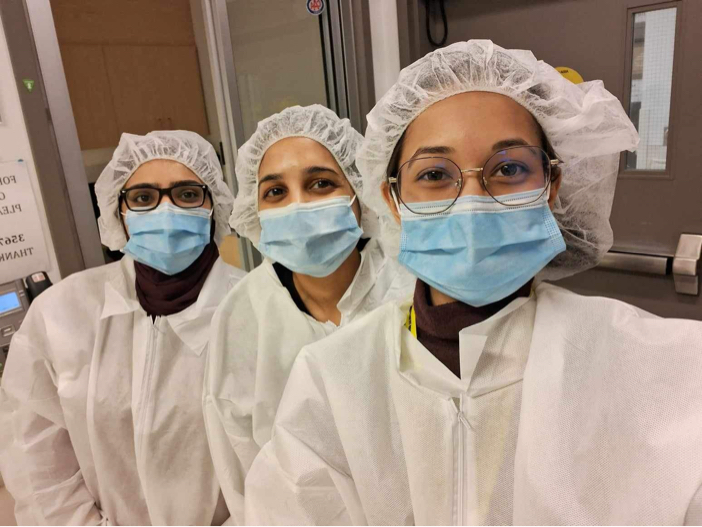Innovating for a greener future
MUHC and McGill finalists for an Envirolys award presented by CETEQ
The McGill University Health Centre (MUHC) is proud to see one of its sustainable development projects, stemming from the Master's Program in Clinical Innovation in the Department of Surgery and Interventional Sciences at McGill University, named as a finalist for a CETEQ Envirolys Award. This recognition highlights the MUHC’s commitment to building a greener and more sustainable healthcare system.
Led by Devangi Patel, Aksa Anwar, and Urshila Naithani, graduates of the program, the project aims to optimize heating, ventilation, and air conditioning (HVAC) systems to reduce humidity in areas surrounding operating rooms. In just three days, the team saved seven megawatt-hours, equivalent to the annual electricity consumption of 75 households.
Led by Devangi Patel, Aksa Anwar, and Urshila Naithani, graduates of the program, the project aims to optimize heating, ventilation, and air conditioning (HVAC) systems to reduce humidity in areas surrounding operating rooms. In just three days, the team saved seven megawatt-hours, equivalent to the annual electricity consumption of 75 households.

“The SIS program has moved from hypothetical projects to real, clinically applicable solutions,” says Dr. Fackson Mwale, Director of the Graduate Program in Surgical and Interventional Sciences at McGill. “We are now integrating innovation directly into healthcare systems, where the impact becomes tangible.”
This achievement is based on exemplary collaboration between the MUHC, the Research Institute of the McGill University Health Centre (The Institute), and Atkins Réalis, with the support of the Performance and Sustainable Development Team and the Clinical Innovation Platform (CLIP) at The Institute.
“This project aligns with a key MUHC priority: sustainable development,” explains Marie-Christine Chartier from the Performance and Sustainable Development Team. “Being named finalists for an award that recognizes innovation and sustainable development is a great honour.”
Professor Jake Barralet, Vice-Chair (Research) for the Department of Surgery, points out that McGill was the first university in Canada to introduce conceptual thinking in a hospital setting: “Today, our students don’t just come up with ideas—they implement real solutions in clinical settings.”
The project is part of the IMPACT program, a joint initiative of the MUHC and The Institute that aims to accelerate healthcare innovation and promote sustainable solutions.
“The exchanges between passionate students and committed hospital staff are a powerful driver of change,” adds Alan Forster, Director of the Department of Innovation, Performance and Quality (DIPQ) at the MUHC.
By combining science, collaboration, and environmental commitment, the MUHC demonstrates that clinical innovation can transform healthcare—taking a step closer to a greener future.
